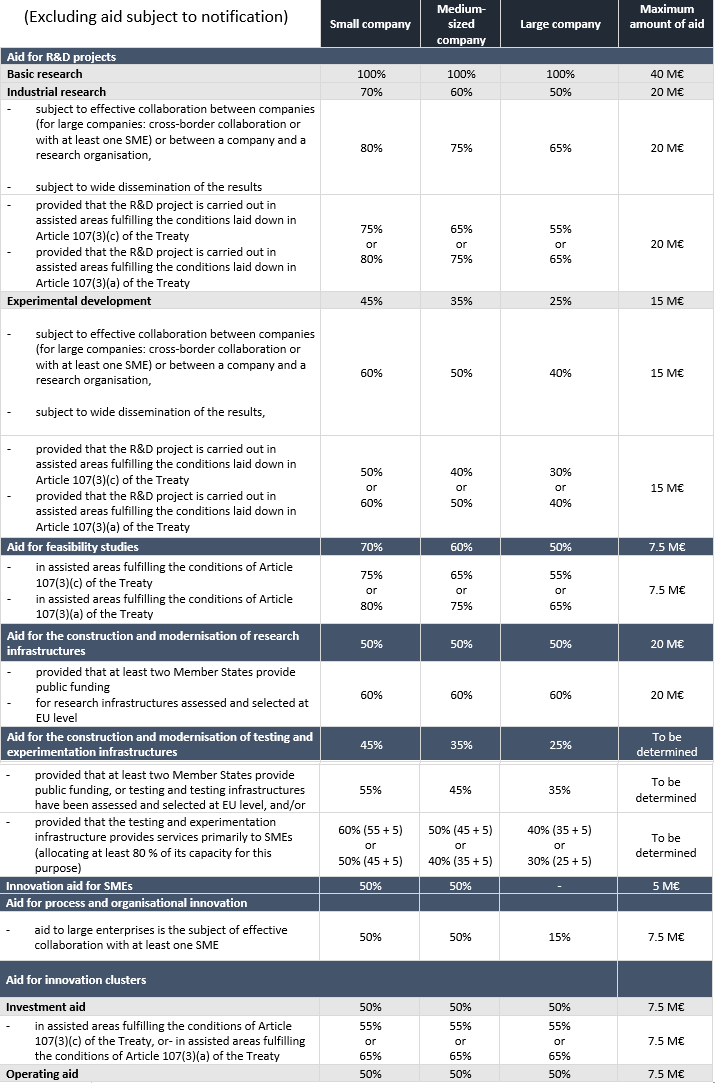The European Commission has opened new possibilities for supporting research, development, and innovation (“R&D&I”) through the adoption of a revised framework for State aid in this area. The “2022 R&D&I Framework”, which came into force on 19 October 2022, sets out the rules under which Member States can support these activities, while ensuring a level playing field in the EU Single Market. It adjusts the 2014 framework, to broaden the eligible activities and simplify the rules of application.
An expansion of eligible activities contributing to the strategic objectives of the European Union
The “2022 RDI Framework” adapts the relevant rules to the current strategic priorities of the European Union, such as the European Green Deal and industrial and digital strategies.
In particular, the definitions of eligible activities have been extended to:
- Clarify the applicability of the R&D&I regime to digital technologies and digitization-related activities (e.g. supercomputers, quantum technologies, blockchains, artificial intelligence, cybersecurity, big data, and cloud or edge computing);
- Enabling public support for testing and experimentation infrastructures needed to develop, test, and modernize new technologies.
This expansion of eligible activities generates new possible maximum aid rates, summarized in the table below.
A relative simplification of the rules introduced by the 2014 R&D&I Framework
The desire to simplify the rules, hitherto applicable to R&D&I support, has resulted in targeted changes concerning the applicable procedures.
To facilitate the practical application of the R&D&I Framework and reduce administrative burdens on businesses and public authorities, several rules have been reviewed, such as the introduction of a simplified mechanism to determine the indirect costs of R&D projects.
Summary of applicable aid ceilings
Please, note that a new global regulation declaring certain categories of aid compatible with the internal market should be adopted by the end of the year. It should update the maximum amounts presented hereabove.

